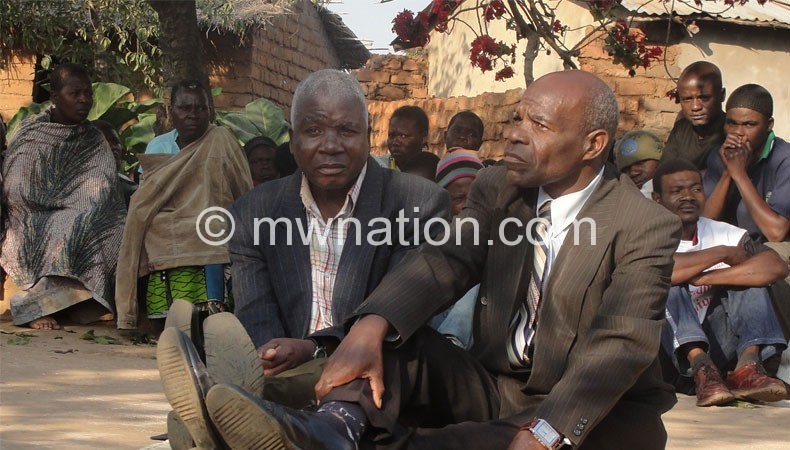Do we need referendum on chiefs?
In May this year, the Ministry of Local Government and Rural Development abolished town chiefs. And to affirm its stand, the ministry issued a circular stating that it had stopped paying honoraria to all the affected chiefs.
The circular quoted Section three (5) of the Chiefs Act which prohibits chiefs from operating and exercising their powers in cities and towns.
Government’s move brought disquiet particularly among chiefs who, in mid June, asked President Peter Mutharika to overrule the ministry’s directive. It would appear Mutharika heeded their concerns and last week “suspended” the directive. He has since established a task force to look at the pros and cons of the directive.
In a recent interview, former vice-president Justin Malewezi said chieftaincy is a system of choice and must not be tampered with. He further advised that any issue concerning chiefs must be worked out with utmost caution.
Nonetheless, others have argued that a task force set by Mutharika cannot address the issues as the matter is subject to a referendum.
Weighing in, president of Maravi Peoples Party (MPP) Yusuf Aufi said there is no need for a task force let alone a referendum because laws guiding this are clear.
“Casting a critical eye on the issue you find that the laws are clear, but politicians have tried to bend the laws for their political interests. Actually, their main focus has been to win an election by using the chiefs to amass support.
“But if we were to follow the law, we would not be in this mess. It is a mess created by politicians and it has to be addressed by them,” he said.
Aufi expressed fear that whatever authority is put in place, it will be subject to abuse by political machinations.
“Another issue that needs to be critically considered is mechanisms which will be put up if town chiefs are completely abolished because I am afraid that politics will still control everything. Even if we decide to have block leaders there is a high possibility that political parties in power will possibly take control and eventually this will also lose its meaning in terms of providing sound leadership.
“The major thing to address is why in the first we violated the constitution or the provisions of the Local Government Act,” he stated.
Village Head Kamsikwa of Lilongwe feels government has betrayed town chiefs in this decision.
“Government should not back away today after having recognised them all along through the honoraria it has been giving them. Therefore, it is unfair to say they are illegitimate now after they have served their communities well and championed development initiatives during the period when there were no ward councillors.
“Why should they be regarded as non-entities now? Their existence has a special charm on the communities and it results in the citizens fully accepting and owning any project being presided over by chiefs as they relate quite well with local people even if they come from different backgrounds,” he said.
Kamsikwa said apart from that, chiefs in towns preside over important functions such as funerals and weddings and it is unfair to take them out because they play an important societal role.
“Chiefs everywhere are known as custodians of culture, so whether you are in town or not this must be followed and it is not a matter of a referendum because the issue is straight forward,” he said.
A Lilongwe-based sociologist Gerald Mangani suggested that land should be identified somewhere where chiefs affected by the decision should to settle with their subjects who would wish to follow them.
“Those areas should be provided with all sorts of social amenities to ease their living. You cannot end chieftainships just like that because these issues are deeply rooted in our culture. Politicians should also tread carefully because chiefs command peoples’ loyalty and it could prove catastrophic to some politicians.
“Chiefs, wherever they are located, have always remained a respectful traditional institution and one should be cautiously aware of their versatility in surviving modern evolutions,” he said.
Mangani thinks the issue should have been dealt with a long time ago when democracy was being introduced in the country.
“Government has not handled this matter professionally and town chiefs have known about this late. This should have been done a long time ago, especially when the democratic dispensation was just being introduced.
“A comprehensive civic education on the provisions of the Chiefs Act as well as the Local Government Act should have been made clear to the town chiefs unlike how it is being handled now,” he explained.
Businessperson Mike Kapalanga of Dowa sees no need for debate or referendum on the issue.
“Traditionally or culturally, chiefs are supposed to rule over their blood relations and as we know in towns there is a mixture of people coming from different places and not related by blood, it does not make sense to have chiefs in towns. It will be a waste if this was put to a referendum,” he argued.





